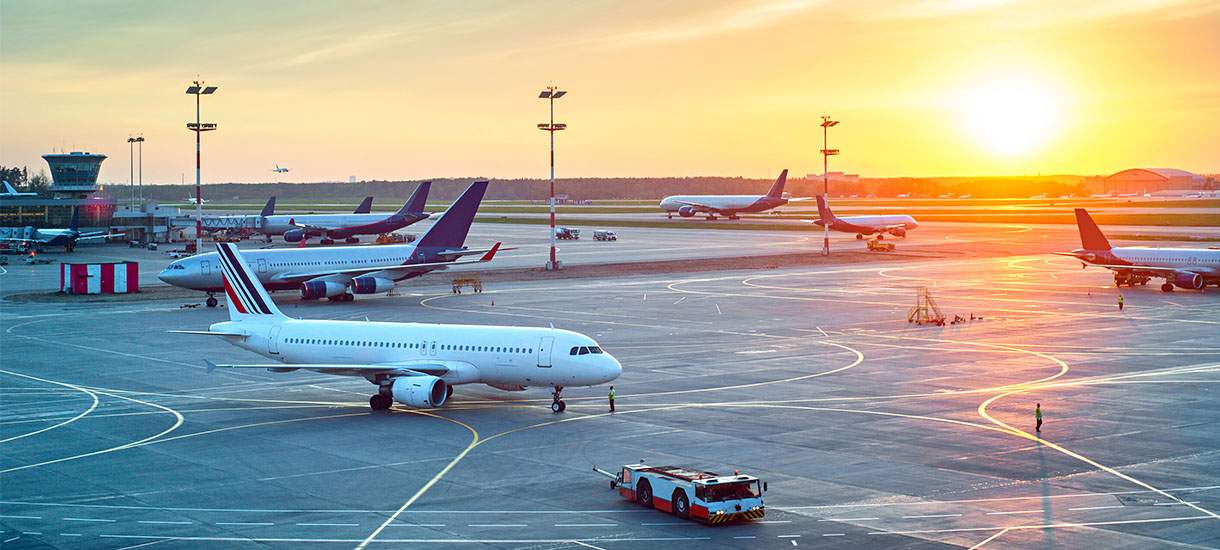When airlines overbook, you might lose your seat
In some cases, travelers are bumped from their pre-booked flights because an airline has overbooked and sold more than 100 percent of a particular flight’s seats. The airline essentially has assumed that some people with reservations won’t show up for their flights (the average no-show rate across the aviation industry is about 15 percent). Sometimes everyone shows up, which means there won’t be enough seats to go around and someone must be left behind. Those who are left behind have been bumped from the flight and will have to take a later flight.
There are two types of bumping – voluntary and involuntarily. With voluntary bumping you choose to give up your seat on your flight for some form of compensation (usually travel vouchers or cash) and with involuntary bumping you are forced to give up your seat. However, those who are involuntarily bumped are protected under specific Federal Aviation Administration guidelines that spell out the minimum amount of compensation and other protections those passengers are entitled to. If you volunteer to be bumped, you are simply agreeing to a deal from the airline. This deal is not regulated and will depend on upon the airline’s gate attendants and how good a negotiator you are.
For a business person hurrying to finalize a deal, getting bumped can be a disaster. For those with flexible travel schedules, it can be a great way to make a few extra dollars or get a free ticket for future use. Expert bumpees suggest making a reservation if a flight is near full. If there are fewer than eight seats available, some people will likely be bumped. Look for flights on heavily traveled days, but on small-bodied aircraft like 727s and 737s. Check out Seat Guru, which details the airline seating on all the major carriers.
Bumping compensation rules don’t apply to commuter airlines (an airline that flies to smaller communities, often linking to a larger regional hub) or charter flights. If the airline asks for volunteers, speak up. The compensation could be as little as a $50 voucher or it could go as much as a free ticket. The airline will rebook you on another flight to your destination. You typically don’t get a free flight if the airline can get you on another flight to the same destination within the hour.
When bumping does occur, it is often due to situations out of the airline’s control such as cancellations due to mechanical or weather-related problems. Be careful. There could be many people needing to be rebooked and there are only so many seats on airplanes. You might just find yourself without a way to your destination, so plan ahead and make sure you know the airline’s policies for hotel vouchers and next day travel.
Compensation for voluntary bumping varies greatly from airline to airline and situation to situation. Most times, it’s based on length of flight or ticket value. Compensation for an international flight, for example, may be higher than for a domestic flight. Gate agents often have the authority to raise or lower the award and may do so at any time.
Most airlines offer free tickets or a voucher worth a dollar amount toward a domestic ticket or international flight (depending on your original destination ticket). While the free ticket sounds like a better deal and may well be, in many cases, the free tickets may come with many booking restrictions and limited seat availability.
Free tickets also do not earn miles, and many airlines have cut back on the amount of compensation. Some have cut vouchers altogether, so it’s important to check on the compensation available before giving up your seat.
What you should know before being bumped
If you do volunteer to be bumped, you will be stuck with whatever deal is available. Don’t expect extras. You’ll want to know all the details of the airline’s offer before you agree to accept their deal. If you are involuntarily bumped, work with the airline counter personnel to book you on another flight. Being nice and working with the agent will often bring much better results than losing your temper. You can let them know you are upset without turning your anger toward them. Know that there are written guidelines, some of which are required by the Federal Aviation Administration, that protect passengers who have been involuntarily denied boarding.
Ask to be protected under the airline’s own written rules in the ticket conditions or contract of carriage for dealing with bumped passengers so you are given all the consideration you are legally due. This section of the contract is often called “Rule 245”, but all airlines will have a section that specifies the action they must take to help you continue your trip and what compensation you are due, if any. The U.S. Department of Transportation mandates that a copy of this contract be available to passengers at airline ticket counters. Many airlines also provide this information on their websites so you might print it and take it with you for reference, if needed.
Some additional things to keep into consideration if bumping occurs:
- Airlines are required to ask for volunteers before involuntary bumping occurs. Although there are no specific guidelines for the offers they make, they should offer compensation of some form to encourage volunteers before they deny you a seat.
- If you checked luggage on the flight from which you were bumped, take measures to protect that luggage.
- Make sure the airline can guarantee you a seat on another flight.
- See if your airline is willing to find you a seat on another airline. Although their contract may allow them some time to first find you a flight on their own airline, most state that when they fail to do so, they will try to find you a seat with another airline. Know that many airlines limit your potential choices of other airlines to certain airlines that have existing agreements with your airline.
- The airline’s contract of carriage may state that, if you choose, you are entitled to an involuntary refund for any unused portion of your ticket, even if you purchased a non-refundable ticket. This contract also specifies what, if any, other compensation you are due because you were involuntarily denied boarding of the flight. Some of this compensation is regulated under Federal Aviation Administration guidelines. The compensation due will usually vary depending on the reason you were denied boarding and how much time you were delayed. The compensation guidelines for U.S. domestic flights also vary from flights with an international portion. You may be entitled to vouchers for meals, overnight stays, long distance phone calls, and/or ground transportation in addition to travel vouchers or monetary rewards.
- Keep all receipts for expenses caused by being involuntarily bumped. No matter what their rules say, you can always make an appeal to the airline’s customer service department and you’ll want the receipts for back up. Send your airline copies of the receipts and keep the originals.
- If it looks like a lot of people are going to be stuck for a long time, consider booking a hotel room and/or a rental car before everyone else books them. Under certain situations, some airlines provide vouchers for hotel rooms and ground transportation, so you should check with them before making your own arrangements. You may also be entitled to meal vouchers and other perks.
- Update any future reservations with airlines, hotels or rental cars that will be effected by your delay.
Here are some tips to remember when bumping your way to cheap travel:
- Pay attention. If you volunteer your seat and the bump reward later goes up, make sure you get the top reward as well.
- Get it in writing. If the airline promises you travel credit, an upgrade, dinner – or anything else, have the agent write down the offer and sign it with their employee number. Finding the same gate agent again may be difficult. If you don’t have proof of the offer, you could miss out.
- Ask for more. When the agent rebooks your flight, ask for an upgrade. Many times, there will be no problem granting the request. If the airline can’t deliver on the upgrade at the time of the flight, get some type of travel credit or compensation for that as well.
- Have a good night. If your new flight schedule requires a night stay, the airline will likely provide a hotel voucher good at certain airport hotels. Make sure you get a hotel with adequate airport transportation, or get a taxi voucher.
- Waste time wisely. If the airline books you on a flight requiring more than a two-hour wait in the airport, ask for permission to use its club lounge. Here you will find such amenities as free drinks, snacks, television, and computer workstations.
- Do it all again. If your re-booked flight is also oversold, go ahead and give up your seat again.
How can I avoid getting bumped?
- Avoid using an airline that oversells too much and ends up bumping many of its passengers. The U.S. Department of Transportation’s Air Travel Consumer Report has information on flight delays, mishandled baggage, overbooking of flights, consumer complaints, and disability complaints for the ten largest U.S. airlines.
- Keep up with the news and see if your airline is facing any upcoming labor negotiations. If they are in talks near the time you are planning your trip, you might want to use another airline in case yours has a work stoppage or slowdown.
- Check the weather conditions that are common along your route that might cause delayed and cancelled flights. Delayed and cancelled flights will fill up seats on other flights which can cause passengers to be bumped.
- Avoid peak travel times. The most likely times to get bumped are major holidays, spring break, and at the beginning and end of summer.
- Fly nonstop or with the least amount of connections possible. Each time you land and take off, you increase your chances of getting bumped. Limiting your stops will also help you avoid the possibility of missing a connection.
- Consider flying earlier in the day. If you do get bumped, you’ll have more options remaining throughout the day to complete your trip.
- Avoid booking the last flight of the day. This is especially important on peak flight days when many flights end up overbooked. Often, fewer people are willing to volunteer to be bumped from the last flight of the day since they will have to end up waiting until the next morning to leave. Since this increases your chances of being involuntarily bumped, plan on arriving for the last flight of the day even earlier than you would for other flights. Also, note that many airlines have a policy against paying for a hotel stay at your flight’s origin if you are delayed overnight.
- Don’t buy standby or open tickets to travel during peak travel times.
- If you fear you may get bumped, consider using a paper ticket over an electronic ticket. If you need to transfer to another airline to continue your trip, a paper ticket can save you time. Most airlines are not yet able to transfer passengers flying on e-tickets without first taking the time to switch them to a paper ticket.
- Try to get a seat assignment when you book your flight.
- Confirm your reservation and verify that the airline has all the correct information.
- It’s not the cheapest way to go, but flying first class, full fare or business class will get you a better shot at seats during your trip.
- Join an airline’s elite member club or frequent flyer program.
- Arrive early and confirm your seat assignment.
- Ask about the flight when you check your luggage. If the flight is overbooked, go directly to the gate. Just having checked-in won’t always guarantee you a seat.
- Board when your row is called. If you delay, they might think your seat is open and board a standby passenger in your place.
If you get involuntarily bumped, will you be compensated?
If an airline involuntarily denies a person boarding, federal law requires the company to repay 100 to 200 percent of the one-way fare to the final destination or up to $400, depending on how long the passenger is delayed from the scheduled arrival at his or her final destination. Know that compensation for delay will vary depending on the amount of time you were delayed, the type of flight you take and possibly even the class of ticket you hold. There are several situations where airlines are not required to compensate you at all, even if you are involuntarily bumped. In some situations, you might even be forfeiting your right to a refund of your unused ticket. However, in many situations, if you did everything right, the Federal Aviation Administration does require that the airline provide some compensation to passengers who have been involuntarily denied boarding.




